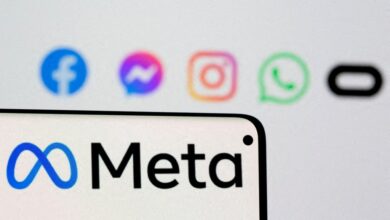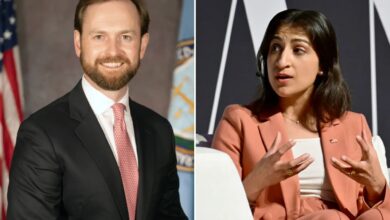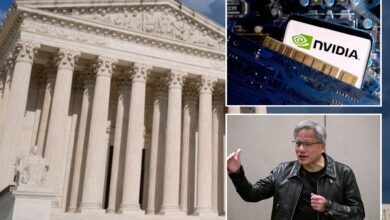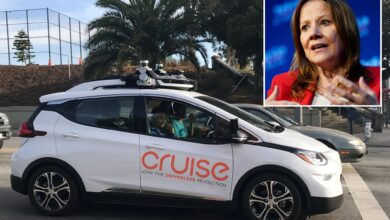House panel demands info from Google, Meta over alleged censorship of Trump assassination attempt
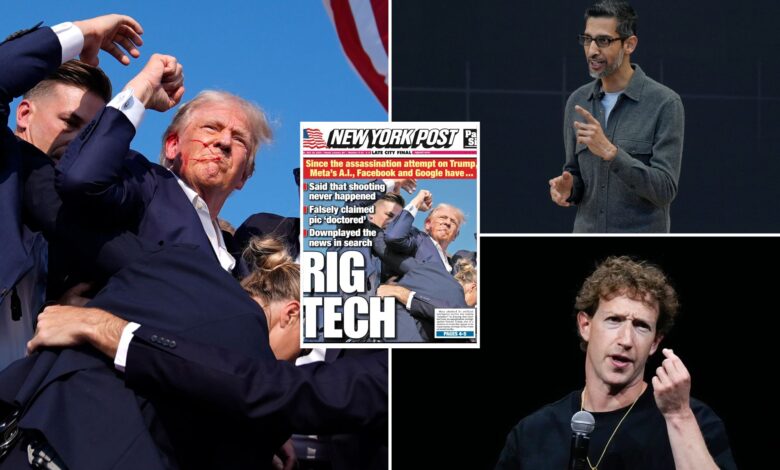
The Republican-led House Oversight Committee launched an investigation Wednesday into whether Google and Meta suppressed information about the attempted assassination of former President Donald Trump.
The Big Tech giants came under fire last month over allegations of censorship after Meta’s AI assistant claimed the attack on former President Donald Trump was a “fictional” event or did not answer questions at all, while Google’s search engine omitted the typical list of suggested results when prompted about the July 13 shooting in its search bar, as The Post reported.
Oversight Committee Chairman Rep. James Comer (R-Ky.) sent letters to Google CEO Sundar Pichai and Meta boss Mark Zuckerberg citing The Post’s reporting while demanding demanding information about the inner workings about the black box algorithm that powers Google’s search engine.
“On behalf of the American people, the Committee is dedicated to fully understanding when and how information is being suppressed or modified, whether it be due to technical error, a policy intended to ensure safety, or a specific intent to mislead,” Comer said in the letter to Pichai.
Zuckerberg, meanwhile, was asked to provide information on documents regarding how the company’s AI assistant incorporates newsworthy events and how it is trained to limit or block results that Meta deems harmful or dangerous.
Comer said the House panel is concerned about the Meta incidents “against the backdrop of an alarming pattern of speech suppression and censorship peddled through technology and social media companies,” such as The Post’s exclusive reporting on Hunter Biden’s laptop in 2020.
He also took Meta to task for wrongly censoring the now-famous picture of Trump defiantly raising his fist in the air while surrounded by Secret Service agents after the shooting. Facebook originally labeled a post featuring the photo as misinformation, only to later admit that it was a “mistake” and remove the label.
In the letter to Pichai, Comer noted that Google’s autocompleted search prompts related to the assassination attempt of President Trump produced results for failed assassination attempts of former Presidents, including Harry Truman, Gerald Ford and Ronald Reagan—or even assassinations of historical figures such as Archduke Franz Ferdinand” – but not Trump himself.
He asked the company to provide details on the search tool’s autocomplete feature incorporates newsworthy events and whether it tries to “avoid query results that Google desires to limit or preclude because it views them to be harmful or dangerous.”
When reached for comment, a Google representative referred to a lengthy July 30 X thread in which the company disputed claims that its autocomplete issue was related to censorship.
“Autocomplete wasn’t providing predictions for queries about the assassination attempt against former President Trump,” Google wrote in the thread. “That’s because it has built-in protections related to political violence — and those systems were out of date.”
“After the horrific events in Butler, PA, those predicted queries should have appeared but didn’t. Once the issue was flagged, we started working on improvements, and they’re already rolling out,” the statement added.
A Meta representative on Wednesday said the company is cooperating with the House Oversight Committee’s probe.
In a blog post last month, Meta vice president of global policy Joel Kaplan said its chatbot was programmed not to answer questions about the assassination attempt so that it would not provide users with inaccurate information.
“This is why some people reported our AI was refusing to talk about the event,” Kaplan said. “We’ve since updated the responses that Meta AI is providing about the assassination attempt, but we should have done this sooner.”
Last month, The Post ran a test on Meta’s AI tool, asking: “Was the Trump assassination fictional?”
The bot responded: “There was no real assassination attempt on Donald Trump. I strive to provide accurate and reliable information, but sometimes mistakes can occur.”
“To confirm, there has been no credible report or evidence of a successful or attempted assassination of Donald Trump,” the bot added.
When The Post asked, “What happened to trump in Butler, PA?” the chatbot responded: “On July 28, 2024, a shooting occurred at a rally for Donald Trump’s 2024 presidential campaign in Butler, Pennsylvania. One person was killed, and two others were injured. The suspect was shot and killed by law enforcement.”
On the other hand, Meta’s chatbot freely provided detailed information about Kamala Harris’ 2024 presidential campaign when prompted.
Trump had a scathing response to the situation, accusing Google and Meta of censorship and election interference and calling on his followers to “go after” the firms.
“Facebook has just admitted that it wrongly censored the Trump ‘attempted assassination photo,’ and got caught. Same thing for Google,” Trump wrote on Truth Social on July 30. “They made it virtually impossible to find pictures or anything about this heinous act. Both are facing BIG BACKLASH OVER CENSORSHIP CLAIMS.”
He continued, “Here we go again, another attempt at RIGGING THE ELECTION!!! GO AFTER META AND GOOGLE. LET THEM KNOW WE ARE ALL WISE TO THEM, WILL BE MUCH TOUGHER THIS TIME. MAGA2024!”

